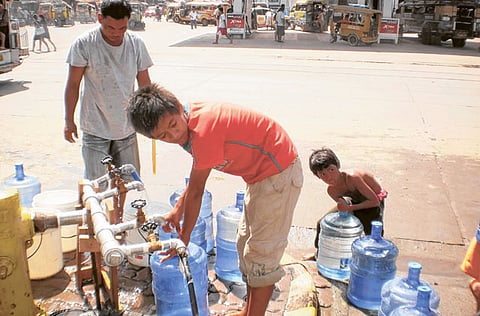Drinking water shortage continues
City may have to wait a month for normal supply

Cagayan de Oro: Following the disastrous flood that left large areas of this key Northern Mindanao city under water, the city may have to stay without having potable water supply longer than expected.
Engineer Rachel Beja, general manager of the Cagayan de Oro Water District (COWD), said it could take a month before the city's water supply services could return to normal.
Typhoon Washi had extensively damaged the city's water supply service and residents have been without potable water since Saturday.
Damaged
"Our main booster pumping station in Macasandig was completely damaged as it was almost totally submerged in water at the height of the typhoon, along with six of our production wells. Interruption in power supply has also affected the operations of some of our pumping facilities. We are currently operating using our generators," she said.
While most taps were dry, some homes in a few districts had dirty water coming out from their taps.
Earlier, authorities had appealed for donations of bottled water.
Government and donors have been giving away packaged water for free, but residents fear these may not last long enough.
Disease risk
Authorities had earlier warned of the possibility of acquiring diseases from drinking polluted water. It could also increase the possibility of an epidemic breaking out.
"Some production wells, particularly in Bugo, Tablon and Macasandig, have already been operational. Delivery of water from our bulk supplier, the Rio Verde Water Consortium Inc, has also not been possible since Saturday due to the damage on the bridge crossing where supply to our take-off point would have been channelled. This brings the total supply shortfall to around 70 per cent in the west service area and 46 per cent in the central and east service area," she said.
Right now, residents endure long queues at the few water rationing stations across the city.



